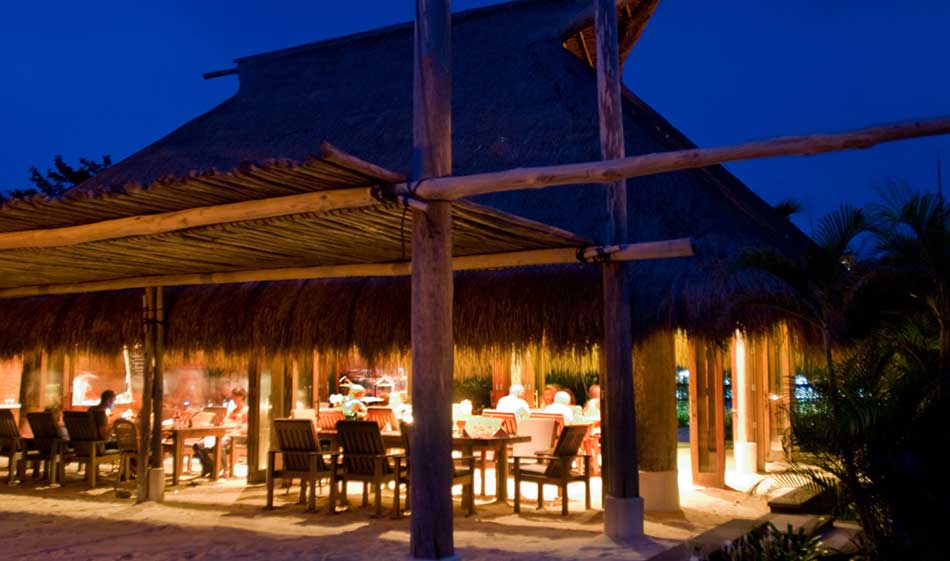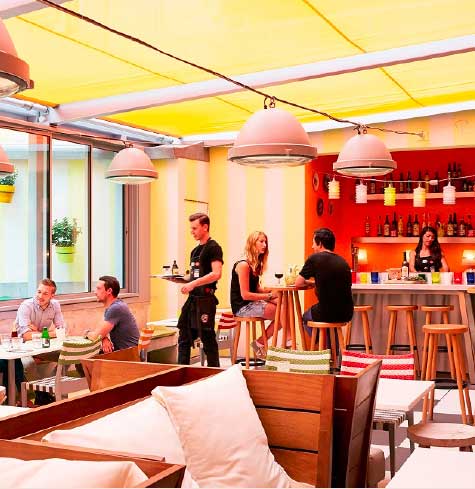THE POWER OF UBUNTU
Question: do you know what the strongest human emotion is? “Love!” might be a word that immediately popped into your head. Or, if you’re less sentimental, perhaps you answered “anger”. “Fear”, “arousal”, “empathy” could all be likely responses, too. If you polled professional psychologists, they may tell you that the primal feeling considered fundamental to our wellbeing as humans is a sense of belonging. Archbishop Desmond Tutu articulated the sentiment of Ubuntu not as “I think, therefore I am”, but rather: “I am a human, because I belong. I participate. I share.”
The luxury travel industry, like all sectors, has its buzzwords and zeitgeists. From marketing to operations to guest experience, we regularly talk about authenticity, locality and personalisation – and now, deservedly, belonging is finding its way into these conversations. Social psychologist, Roy F. Baumeister, and Professor of Psychology and Neuroscience, Mark Richard Leary, Ph.D., published one of the most famous papers to suggest humans have a natural need to belong – but it shouldn’t take academics to validate how a respect for and connection with each other promises to have a positive effect. Humans are meant to live as a collective – so it’s natural that this interaction and support has cognitive and psychological benefits for staff and traveller.

Hoteliers who cultivate an environment where their team feels part of a tight-knit family, in turn, will successfully create a community – compelling for all. “Our staff are our greatest asset”, says Joss Kent, CEO of andBeyond. “Their passion, commitment, expertise and dedication lies behind our every success. Recognising how crucial our staff is to us, we place particular emphasis on training and empowering our employees, drawing a great percentage of our staff from local communities and providing on-the-job training. Through making a real impact on local communities – from providing direct employment to supporting local businesses, providing funding for education and healthcare, and paying rentals to local communities – we set ourselves up as the employer of choice and show local communities the value of preserving their wildlife.”
Creator of Cempedak and Nikoi in Indonesia, Andrew Dixon motivates staff through empowering employees who take pride in their work. Their staff turnover was six per cent in 2017. “We have introduced a raft of innovative staff policies; we do a lot of training and often move team members to work in different areas if they indicate an interest; and staff have mentors.”

Dixon has also helped them establish micro-businesses – one family of a bartender makes the bamboo straws used in the bar. After the Australian banker-turned-hotelier got chatting to his employees about how they finance purchases such as motorbikes and houses, he learned that they were getting finance but at interest rates of one-to-two per cent a month. He calculated the lowest rate as 48 per cent a year. “These loans were from licensed banks, not loan sharks.” The government pension scheme was not going to provide for them, either, so they set up a voluntary internal savings and loans scheme called Koperasi. “A registered entity managed by the staff, it provides bank accounts. Putting a little of their salary aside earns them six per cent per annum; after saving for six months, they can borrow from the scheme at 12 per cent per annum. “In effect, they are saving and lending to each other; but by doing it through their pay cheques, there is almost no risk of default. It is something that has cost us little to set up as it is managed by the staff, and they take great pride in seeing savings accumulate.”
Hyperlocal recruitment and fair wages are hospitality traits of paramount importance. Prioritising this is an obvious way to achieve Ubuntu – and yet it’s surprising how many establishments that serve a high-spending clientele don’t consider this. Reading Rooms in Margate, Kent, may only be a three-room boutique B&B, but proprietor, Louise Oldfield, is a stickler for an ethical payroll and they pride themselves on being a UK Living Wage employer. In Morocco, Kasbah du Toubkal was set up by brothers Chris and Mike McHugo to be run entirely by the local Berber people. As well as employing only staff from nearby villages in the Atlas Mountains, the hotel supports education and medical care in the region. Being connected to the community also means a nicer vibe all round; a guest knowing that their room rate supports meaningful, long-term employment makes time away all the more enjoyable. It follows that employee retention and customer loyalty are both boosted by Ubuntu. When this flourishes, IQ test performance, motivation and focus are all improved.

Travel experiences are becoming less about the hardware – the physical backdrop to our time away – and more about how our escapes make us feel. Mama Shelter exemplifies the new breed of affordable, design-led hotels to have mastered communal areas that cultivate a sense of belonging – Jérémie Trigano attributes this to creating free-flowing spaces. “We broke down barriers in creating one big area, our loft, for people to interact. No more physical separation between the restaurant, the pizzeria, the bar, the lounge, the lobby or the reception desk”, he explains. “At the heart of it all is our lively concert stage and our island bar. Once we go past the design, Mama is a common ground for people to meet and feel alive. That is where most design-led hotels fail miserably. By focusing on decoration, they forget the most important element of a hotel: the people. The guests and the staff make the hotel great!”
Wellbeing has become another ubiquitous term in luxury travel; but, rather than merely describing the evolution of the spa, it should recognise a desire for mental and spiritual health to be given the same consideration as physical health. Since a sense of belonging is so good for the soul, more and more luxury brands are going beyond fancy creams and new-age tunes to consider and communicate how time in an inclusive atmosphere can also be restorative. If staff are content, this translates into more meaningful exchanges for all – their happiness has healing power in itself. Personalised, more intimate travel experiences are what consumers are craving; this follows naturally when you create an authentic fellowship of folks, both behind the scenes and front of house.
Personalised, more intimate travel experiences are what we’re craving, and this follows when you create an authentic fellowship of folks – behind the scenes and for the guests. An enlightening change of scene immerses us in new cultures and contexts, and invites us to engage with interesting people – but this is only the start of the story. As Abraham Maslow noted in his hierarchy of needs theory, for a person to achieve self-actualisation (in other words, to live life to their full potential), the basic requirements that must be met are food, shelter, warmth and security… But also: this vital sense of belonging. When Barack Obama spoke at Mandela’s memorial, he emphasised that Ubuntu captured the Nobel Peace Prize winner’s greatest gift: “His recognition that we are all bound together in ways that are invisible to the eye. That there is a oneness to humanity; that we achieve ourselves by sharing ourselves with others, and caring for those around us.”
[This article was published in Beyond: Empowered, We Are Africa’s print magazine, in May 2018.]
 JULIET KINSMAN
JULIET KINSMAN
Contributor to The Observer and Condé Nast Traveller, Louis Vuitton City Guides author and founding editor of Mr & Mrs Smith, meeting philanthropic hoteliers inspired Juliet Kinsman to set up Bouteco to share the most inspiring stories of sustainability to empower others to push purpose up their agendas.











